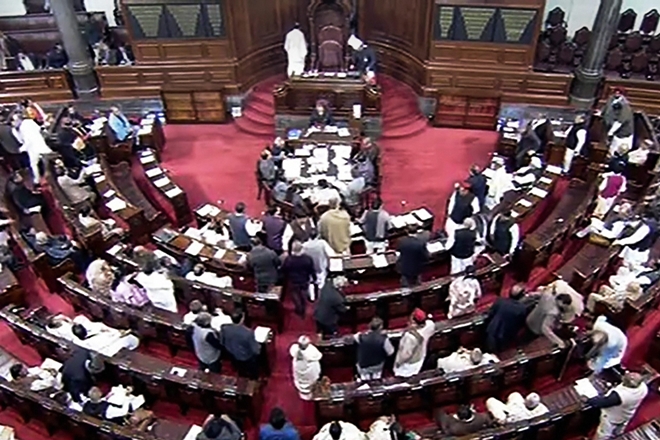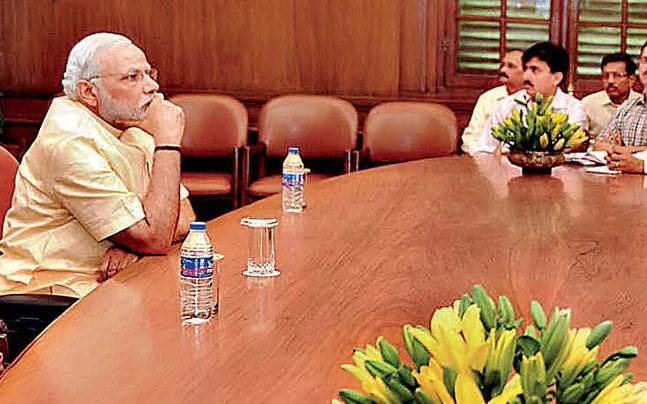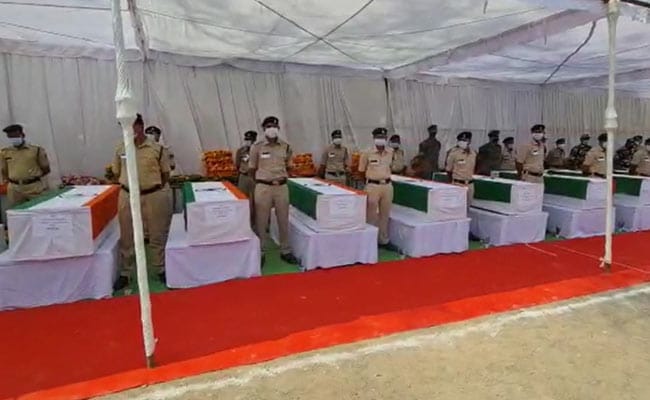Home Minister Rajnath Singh on Wednesday told the Rajya Sabha that the Citizenship Amendment Bill is intended to pave way for Indian citizenship to the persecuted religious minorities from three countries.
He assured the government was committed to preserving the distinct culture and identtiy of the North East. The bill seeks to provide Indian citizenship to non- Muslim migrants from Pakistan, Bangladesh and Afghanistan based on some conditions.
The Minister said he was aware of the concerns regarding the bill as well as misconceptions being spread about it but would like to dispel the apprehensions of the people of Assam and the Northeast.
He said it is not only for migrants from these states but to “protect migrants of six minority communities from three nations” and was applicable to the entire country.
Thousands of migrants from Western borders are residing in states like Gujarat, Rajasthan, Delhi, Madhya Pradesh and other states and the bill is for them too and would be implmented in all states and UTs, he said.
He said there were reports of sporadic violence from some parts in Assam, Tripura and Meghalaya during the bandh called over the Bill, but the situation was fully under control and peaceful. Singh said he was in touch with the Chief Ministers of these states and would convene meetings soon.
“I assure the House that we are committed to preserve Northeast’s identify and culture…We want a peaceful situation in the Northeast and are in constant touch with the state governments. We will strive to protect the identity and culture of the Northeast and will take steps to address all concerns,” he said.
He said due to steps taken by the Centre in the past four years, including augmenting security and intelligence establishment and ensuring coordination among security agencies, there have been unprecedented reforms in the Northeast security situation and it is on the path of development.
The Home Minister said Assam was facing the problem of illegal migration for long and witnessed an agitation from 1979 to 1985 following which the Assam accord was signed on August 15, 1985.
He said the Centre has taken concrete steps to implement the Assam Accord including completing the task of NRC and has constituted a high-level committee to implement clause 6 of the Accord.
The committee after consulting the stakeholders on protecting the interest of the local people will give its recommendations within six months.
A Home Ministry appointed committee has given its recommendations on December 29 on the grant of ST status to six communities of Assam namely Tai Ahom, Koch Rajbongshi, Chutia, Tea Tribes, Moran and Matak.
He said the government has accepted the recommendations and Ministry of Tribal Affairs has placed it before Parliament.
While giving ST status to these communities it will be ensured that “interests, rights and privileges of the existing tribes there will be fully protected,” he added.
Singh said action will be taken on granting ST status to Bodo Kacharis in Hill districts of Assam and Karbis in the rest of Assam besides giving more powers to Autonomous District Councils under the Sixth Schedule of the Constitution.
He said several other issues were also raised by various organisations like a new land policy for people in Assam, new land laws and earmarking specific areas as protected revenue areas, adding the Centre has asked the Assam government to address them.
The Congress members earlier had raised slogans over the citizenship amendment bill.
The bill was passed by the Lok Sabha on Tuesday and was brought to the Upper House after extending its sitting by a day.
Congress members, including Ripun Bora, wanted the Home Minister to be called to the House to make a statement on the citizenship bill.
The bill was originally introduced in 2016 and was later sent to the JPC, which submitted its report on Monday.
On the basis of the recommendations of the JPC, a fresh bill was introduced on Tuesday.









